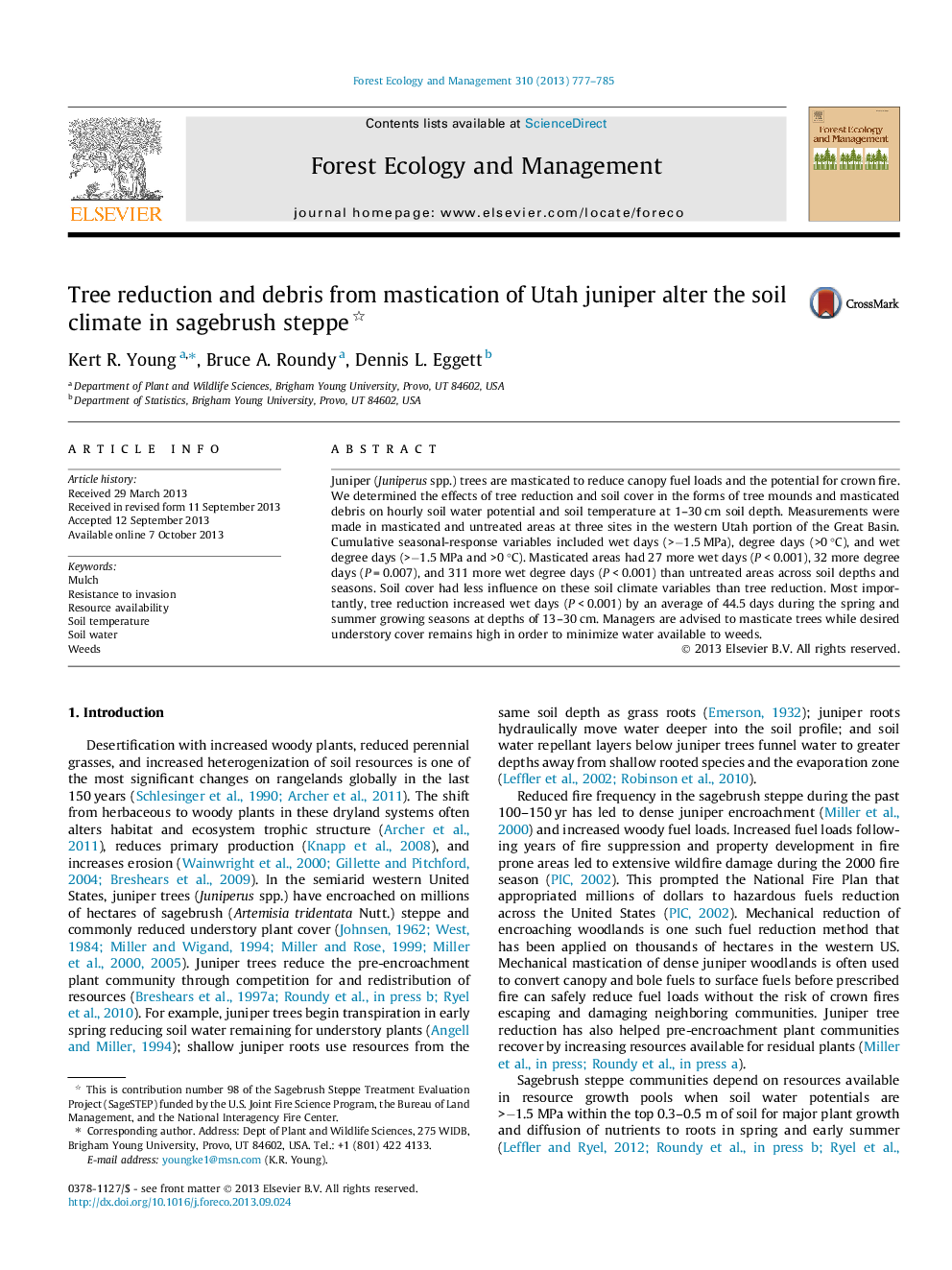| کد مقاله | کد نشریه | سال انتشار | مقاله انگلیسی | نسخه تمام متن |
|---|---|---|---|---|
| 6543865 | 159212 | 2013 | 9 صفحه PDF | دانلود رایگان |
عنوان انگلیسی مقاله ISI
Tree reduction and debris from mastication of Utah juniper alter the soil climate in sagebrush steppe
ترجمه فارسی عنوان
کاهش درخت و آوارگی از ترشحات یاتا، سنبله، تغییرات آب و هوایی خاک در استپ سجبوش را تغییر می دهد
دانلود مقاله + سفارش ترجمه
دانلود مقاله ISI انگلیسی
رایگان برای ایرانیان
کلمات کلیدی
مالچ، مقاومت به تهاجم، در دسترس بودن منابع، دمای خاک، آبهای خاک، علف های هرز
موضوعات مرتبط
علوم زیستی و بیوفناوری
علوم کشاورزی و بیولوژیک
بوم شناسی، تکامل، رفتار و سامانه شناسی
چکیده انگلیسی
Juniper (Juniperus spp.) trees are masticated to reduce canopy fuel loads and the potential for crown fire. We determined the effects of tree reduction and soil cover in the forms of tree mounds and masticated debris on hourly soil water potential and soil temperature at 1-30 cm soil depth. Measurements were made in masticated and untreated areas at three sites in the western Utah portion of the Great Basin. Cumulative seasonal-response variables included wet days (>â1.5 MPa), degree days (>0 °C), and wet degree days (>â1.5 MPa and >0 °C). Masticated areas had 27 more wet days (P < 0.001), 32 more degree days (P = 0.007), and 311 more wet degree days (P < 0.001) than untreated areas across soil depths and seasons. Soil cover had less influence on these soil climate variables than tree reduction. Most importantly, tree reduction increased wet days (P < 0.001) by an average of 44.5 days during the spring and summer growing seasons at depths of 13-30 cm. Managers are advised to masticate trees while desired understory cover remains high in order to minimize water available to weeds.
ناشر
Database: Elsevier - ScienceDirect (ساینس دایرکت)
Journal: Forest Ecology and Management - Volume 310, 15 December 2013, Pages 777-785
Journal: Forest Ecology and Management - Volume 310, 15 December 2013, Pages 777-785
نویسندگان
Kert R. Young, Bruce A. Roundy, Dennis L. Eggett,
